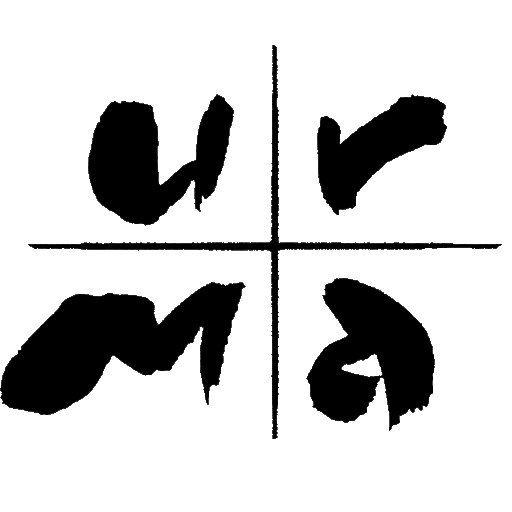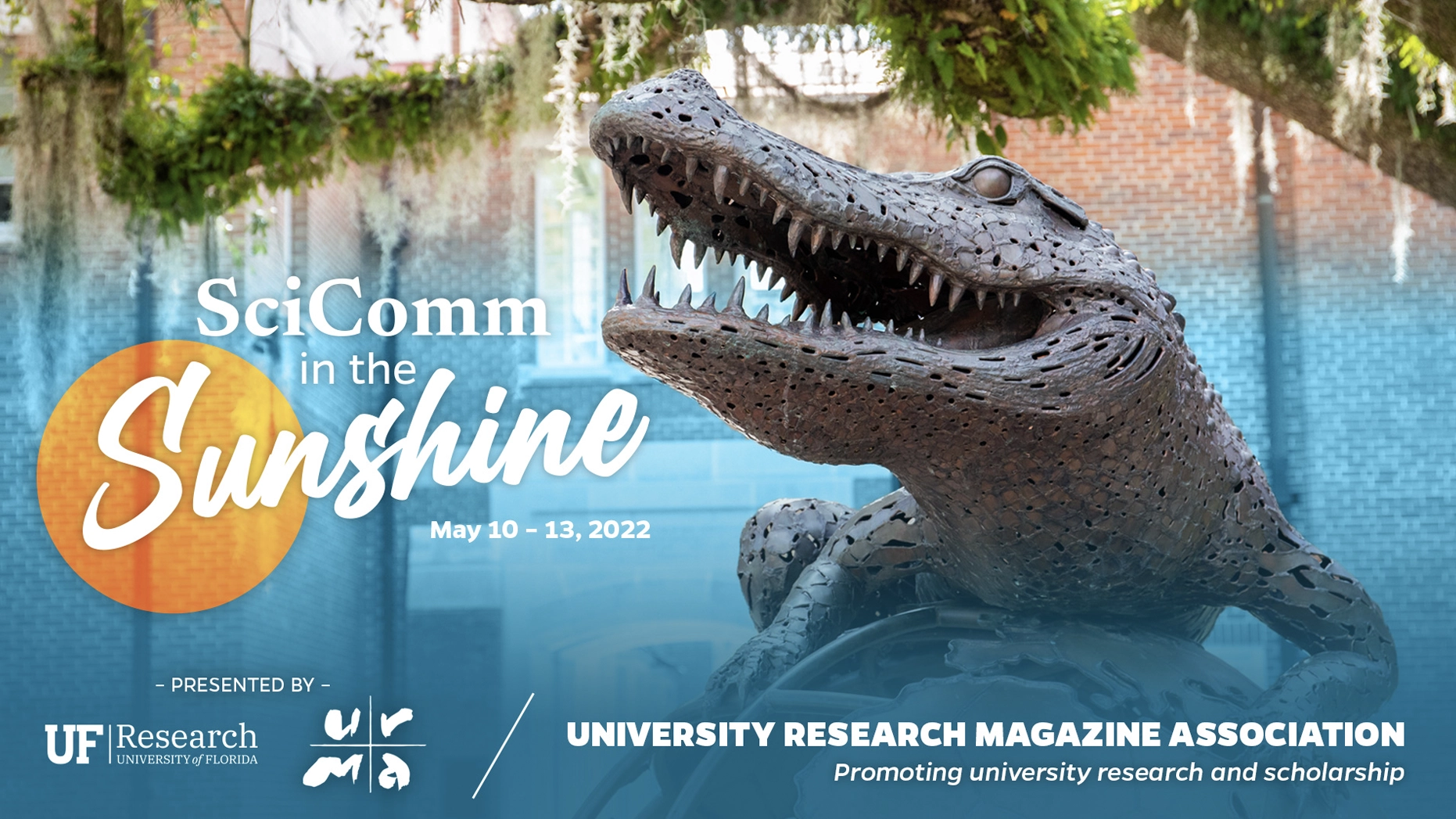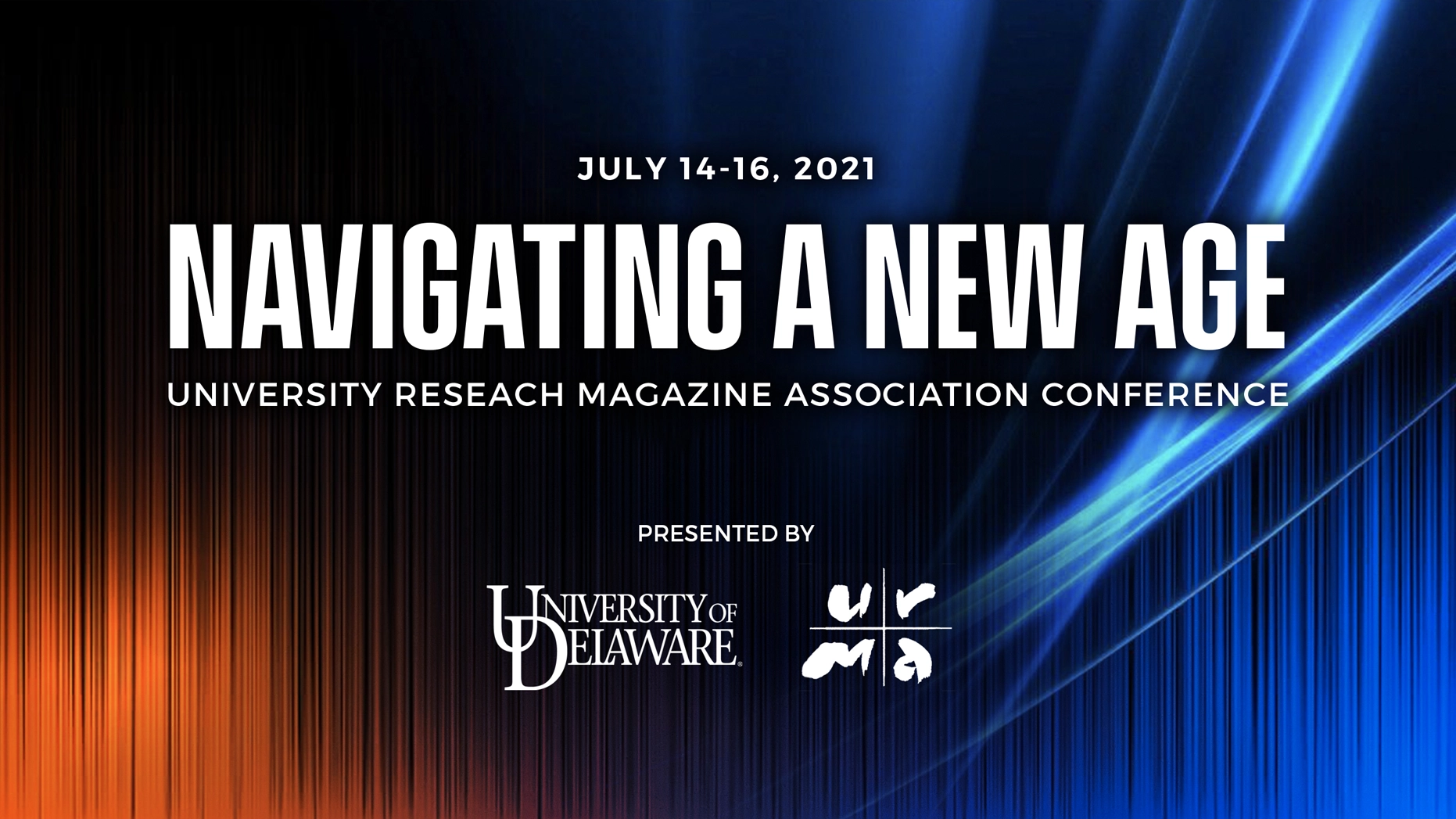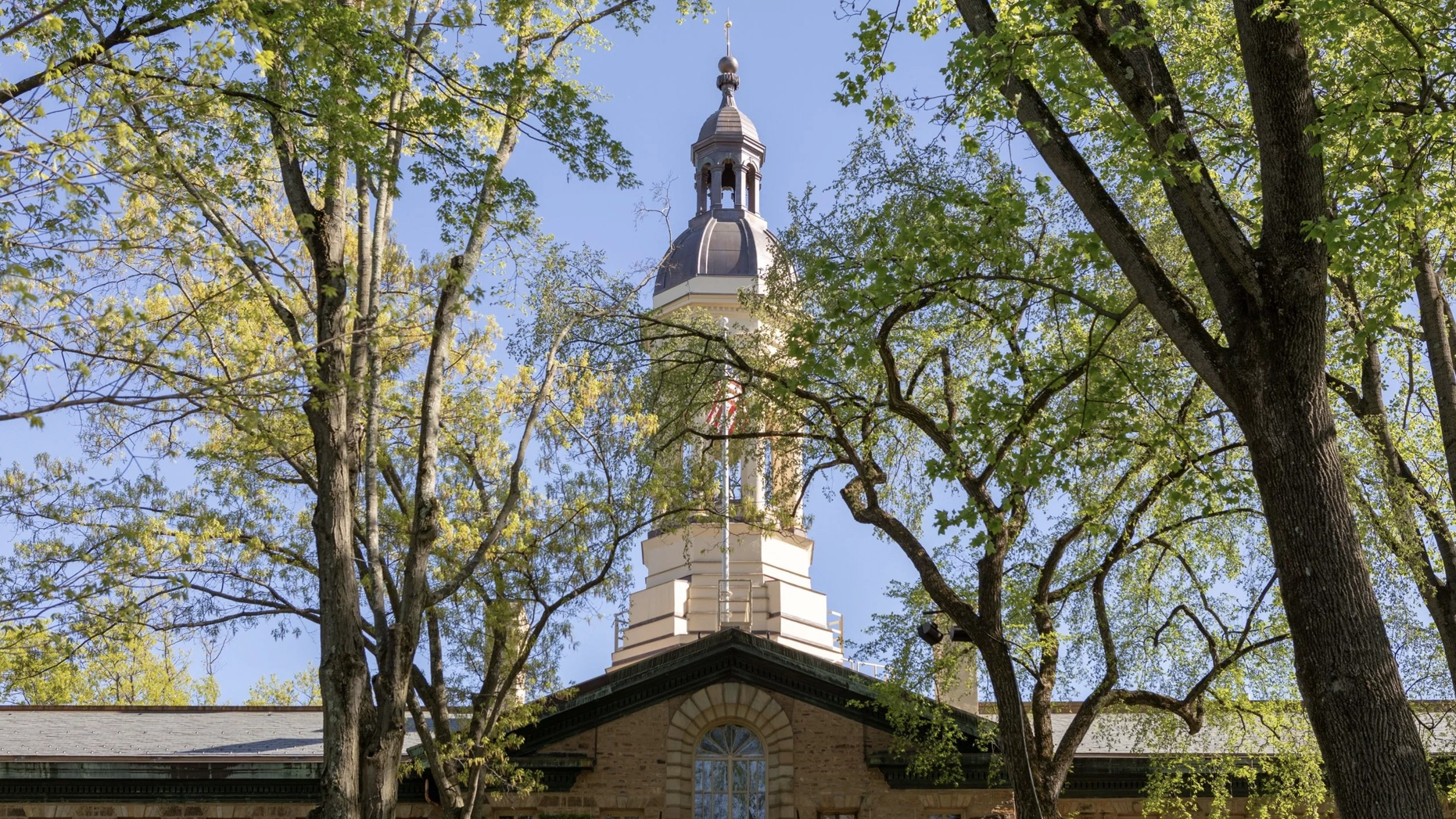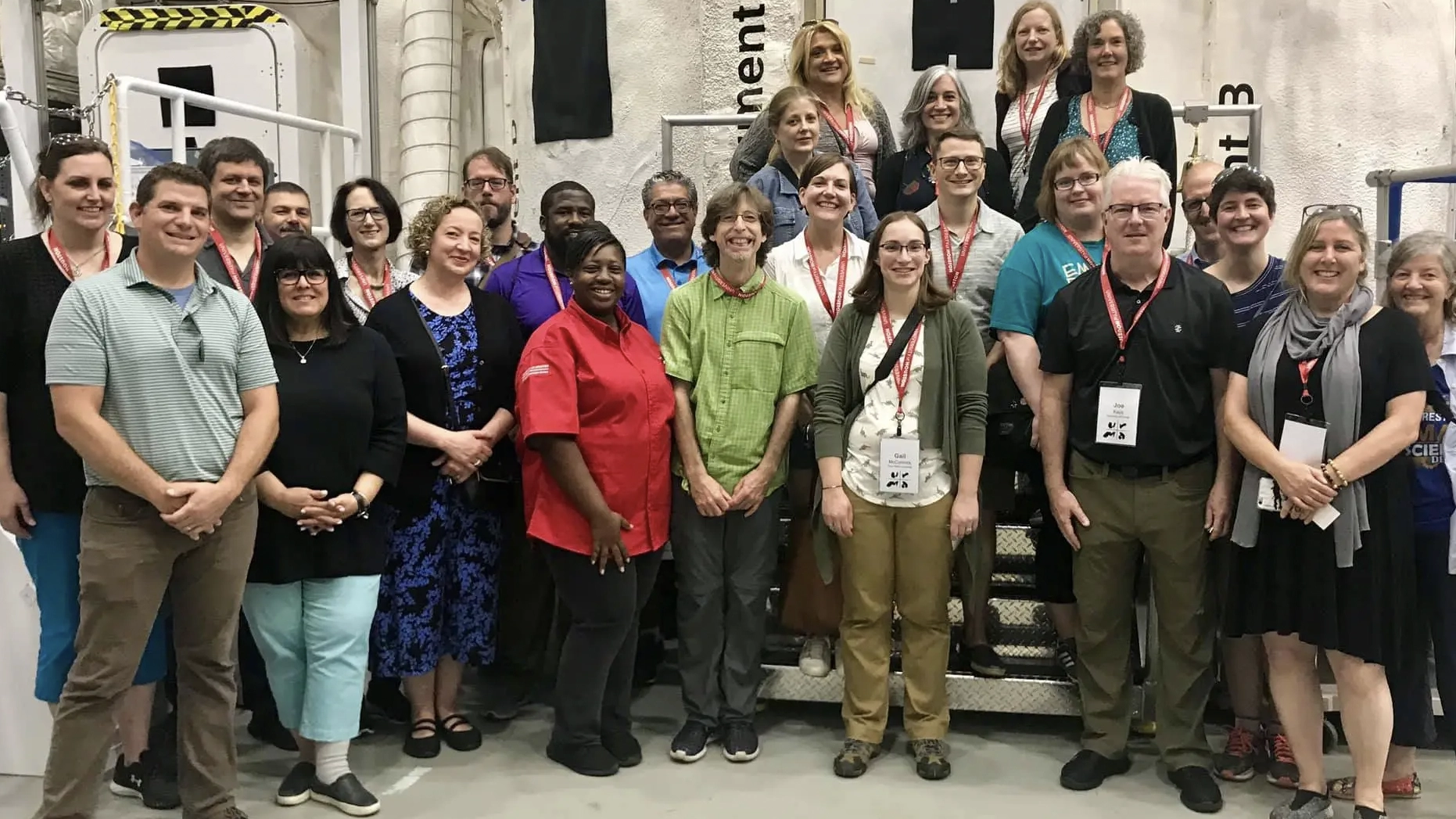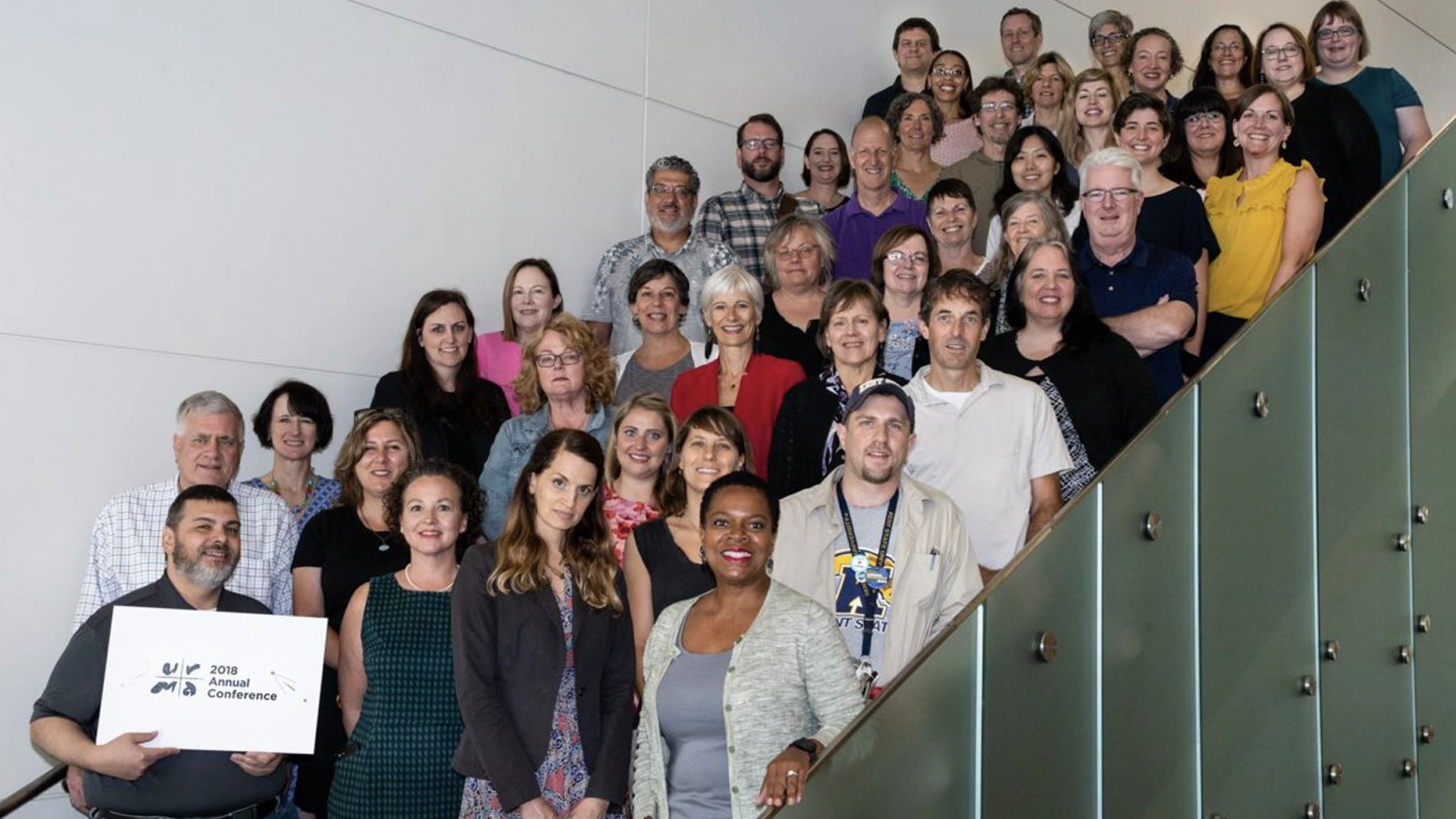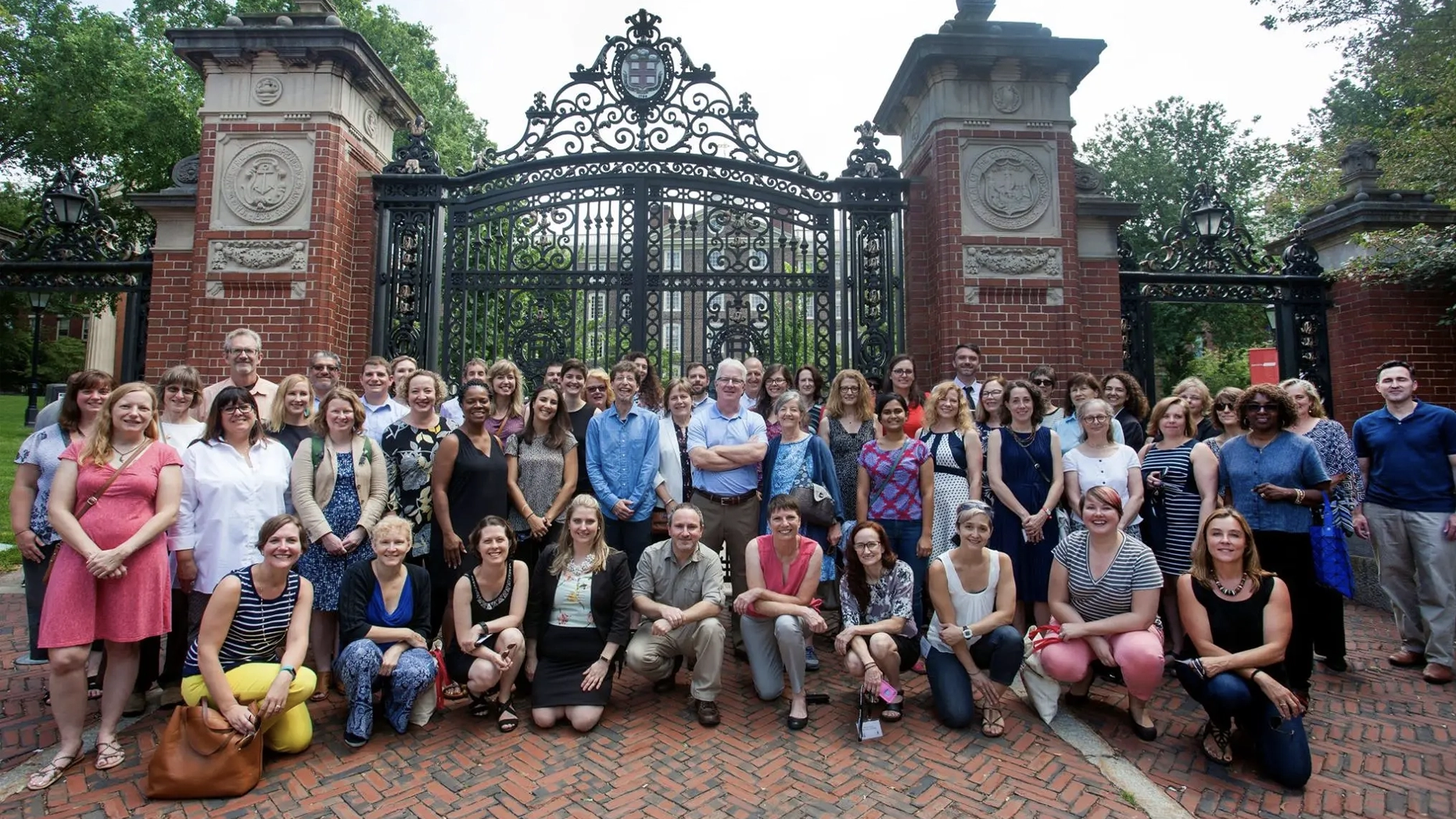
Hotel block available at
Hampton Inn & Suites Chapel Hill-Carrboro/Downtown
URMA Conference 2024
Join us for URMA 2024 at the University of North Carolina at Chapel Hill! You’ll connect with colleagues from universities and institutions who communicate about research through online and print magazines, media relations, social media, videos, podcasts and more. Our conference features practitioners in realms such as journalism, design, photography, multimedia and other areas relevant to telling the stories of research. If you communicate about your institution’s research, URMA’s annual conference is for you.

2024 URMA Host Institution
Travel / Accommodations
Registration
Nick Houtman Travel Grant
2024 Conference Agenda
*Sessions may change slightly in the next few months.
Tuesday, May 14th Pre-conference Agenda
12:15 PM
Board shuttle from Hampton Inn & Suites Chapel Hill-Carrboro/Downtown
12:30 PM
Morehead Planetarium & Science Center
- Planetarium Show & Exhibit Tour
- Panel with Will Freund, community engagement specialist; Kelly Marks, exhibits manager; and Whit McMillan, science programs manager
3 PM
N.C. Botanical Garden
- Tour of the gardens
- Research conversation with conservation ecologist Michael Kunz
5:30 PM
Dinner at Luna Rotisserie & Taproom
A tribute to two distinct culinary traditions, the menu at Luna captures the unique and varied cuisines of South America, yet respects its roots in the American South.
7 – 10 PM
Hospitality Suite
Register early and enjoy drinks and snacks with your fellow URMAns.
MAY 14th CONFERENCE SPEAKERS

Whit McMillan

Will Freund

Kelly Marks
Wednesday, May 15th Agenda
Pleasants Family Assembly Room @ Wilson Library
All events take place here unless otherwise noted.
8:30 AM
Registration & Breakfast
9 AM
Conference Kickoff
Don Hobart, Associate Vice Chancellor for Research
9:15 – 10:15 AM
KEYNOTE: The Ecology of Science Communication
Speaker: Michelle Jewell, a zoologist and shark researcher, host for Discovery’s “Shark Week,” and the communications and engagement manager at NC State’s Southeast Climate Adaptation Science Center
10:30 – 11:20 AM
SESSION 1: Hosting a University Research Week
Presenter: Layla Dowdy, Director of Research Communications at UNC-Chapel Hill
11:30 AM – 12:30 PM
SESSION 2: Nuts & Bolts Sessions
Pandora’s (in)Box: A Research Newsletters Discussion
Presenter: Kelley Christensen, University of Oregon
Your research newsletter doesn’t need to feel like a monster with a bottomless maw that goes out into the void never to be heard from again. In this nuts & bolts discussion, we’ll chat through questions of purpose and audience, content development (and getting help so you don’t have to do it all by yourself!), design and formatting, sustainability, being intentional about diversity, and how to evaluate for measurable impact. Because remember, at the bottom of Pandora’s box was hope.
Happy Accidents: Finding Creativity in Mistakes
Presenter: Alyssa LaFaro & Corina Prassos, UNC-Chapel Hill
Ever misspelled “Noble” Prize, or paired a quote with a photo of a person who didn’t say it? You’re not alone. We’ve all made mistakes in our work — but they’re not failures. Oftentimes, they actually fuel creativity. In this discussion, let’s unpack how we channeled our inner Bob Ross to turn our mishaps into highlights.
Focused Impact: Creating a Dynamic Social Media Presence
Presenter: Emma Candelier, University of Virginia
Learn strategic tactics to engage audiences, amplify research findings, and foster community. Explore content curation, platform optimization, and audience targeting techniques. Navigate the digital landscape effectively and drive meaningful impact across social media channels.
12:30 PM: LUNCH
1 – 2 PM
SESSION 3: Ask Matt
A Conversation with Matt Shipman, the research communications lead @ NC State and author of the “Handbook for Science Public Information Officers”
Moderator: Michelle Jewell, communications and engagement manager at NC State’s Southeast Climate Adaptation Science Center
2:15 – 3:15 PM
SESSION 4: Overcoming and Working Through Research-Related Crises
A conversation on how research administration, central communications, and the general counsel’s office at UNC-Chapel Hill work together to address crises as they arise. Topics include leadership transitions, animal study issues, operational disruptions, and public inquiries.
Panelists: Don Hobart, associate vice chancellor for research within UNC Research; Mike McFarland, director of university relations within University Communications; Gavin Young, senior director of special projects and public records within University Communications; and David Lambeth, director of strategic research and compliance within the Office of the Vice Chancellor for Research
Moderator: Cat Long, research communications manager for University Communications
3:15 – 3:45 PM
SESSION 5: Cookies & Speed Networking
4 – 5 PM
TOUR: Fluids Lab
A 4,500-square-foot experimental laboratory featuring a wave tank, saltwater facility, and wind tunnel for research on various phenomena observed in marine science and biology
6 – 8 PM
RECEPTION: Carolina Basketball Museum
The Carolina Basketball Museum, located on the ground floor of the Ernie Williamson Athletic Center, celebrates the rich history of the University of North Carolina men’s basketball program.
MAY 15th CONFERENCE SPEAKERS

Michelle Jewell

Layla Dowdy

Matt Shipman

Don Hobart

Mike McFarland

Gavin Young

David Lambeth

Cat Long

Kelley Christensen

Emma Candelier

Alyssa LaFaro

Corina Prassos
Thursday, May 16th Agenda
Pleasants Family Assembly Room @ Wilson Library
All events take place here unless otherwise noted.
8:30 – 9 AM: BREAKFAST
8:30 – 9 AM
Professional portraits by Megan Mendenhall
Megan Mendenhall, Photographer in the UNC Office of Research Communications
9 – 10 AM
SESSION 1: Cross-Campus Collaborations to Improve Content Dissemination
A conversation about best practices for working with communicators in other schools and institutes to create multi-platform content packages.
Panelists: Alyssa LaFaro, research communications manager within the UNC Office of Research Communications; Kim Spurr, associate director of communications for the UNC College of Arts and Sciences; and Emily Williams, director of communications at the UNC Institute for the Environment
Moderator: Corina Prassos, graphic designer within the UNC Office of Research Communications
10:15 – 11 AM
SESSION 2: Building a School and Comms Function at the Same Time
Presenter: Kristen Young, director of communications at the UNC School of Data Science and Society
11:15 AM – 12:15 PM
SESSION 3: FIREHOSE SESSION
- Step Up Your Video Game with AI
By Michael Terrazas, University of Georgia - Who Do You Think You Are? Leveraging Your Research Identity.
By Amanda Dobbs, Georgia State University - When a Mere Press Release Just Won’t Do
By Mimi McHale, Oak Ridge National Laboratory - Off the Wall: A Research “Wall of Fame” Project
By Rachel Coker, Binghamton University - What AI Can (and Can’t) Do for You
By Craig Korn, Veggie Graphics - A Self-Paced Communications Training for Your Researchers: You Can Make It Happen.
By Karen Roberts and Beth Miller, University of Delaware - Identifying Your Signature Research Stories
By Brett Beasley, University of Notre Dame - Digital Magazines: What Are the Best Options Today?
By Joe Kays, University of Florida
12:15 – 12:45 PM: LUNCH
12:45 – 1:30 PM
SESSION 4: Finding and Nurturing New Talents
Presenter: Karl Leif Bates, Executive Director of Research Communications at Duke University
1:45 – 2:45 PM
SESSION 5: Research Communication Strategies for Diverse Audiences
Presenter: Essie Torres, director of strategy for research diversity workforce and community partnerships, and Allison Lazard, associate professor in the UNC Hussman School of Journalism and Media
2:45 PM: Distinguished Service Award / Break
3 – 4 PM
SESSION 6: Making an Impact with Data Visualization
Presenter: Lorin Bruckner, data visualization services librarian for University Libraries
4:15 – 5:15 PM
OPTIONAL: URMA Book Club Session
Optional Book Club
Location: Epilogue Books & Chocolate Brews, 109 E Franklin St.
• A discussion of “In the Waves” with author and engineer Rachel Lance. “In the Waves” explores what happened to the HL Hunley, a Civil War submarine that successfully destroyed a union ship — but disappeared in the process. Lance’s expertise in blast and ballistic events helped uncover the mystery of this ship, discovered off the coast of South Carolina in the early 2000s with the bodies of its crew members almost completely preserved.
6 – 8 PM
RECEPTION: URMA Film Festival & Reception at the Ackland Art Museum
Join us for an evening of culture, small bites, and short films! The 6th Annual URMA Festival features videos and documentaries from our member institutions that highlight research excellence, discovery, and history. For more than 60 years, the Ackland Art Museum has provided access to world-class exhibitions, rich community programming, and innovative educational opportunities.
MAY 16th CONFERENCE SPEAKERS

Corina Prassos

Alyssa LaFaro

Kim Spurr

Emily Williams

Kristen Young

Karl Leif Bates

Essie Torres

Lorin Bruckner

Rachel Lance

Allison Lazard
Friday, May 17th Agenda
Pleasants Family Assembly Room @ Wilson Library
All events take place here unless otherwise noted.
8:30 – 9 AM: BREAKFAST
9 AM: GROUP PHOTO
9:15 – 10:15 AM
SESSION 1: AI in the Workplace & How to Use It in Your Job
Panelists: Mohammad Jarrahi, UNC information and library science professor and AI expert; Daniel Anderson, UNC English professor and director of UNC’s AI Literacy Initiative; and Sarah Vassello, program manager for the UNC Center for Innovation & Sustainability in Local Media
Moderator: Kristen Young, director of communications at the UNC School of Data Science and Society
10:30 – 11:30 AM
SESSION 2: Emerging Trends in Research
Presenters: Frank Leibfarth, UNC chemistry professor and PFAS expert; Alexander Tropsha, UNC pharmacy professor and drug discovery expert; and Kurt Gray, UNC psychology & neuroscience professor and morality expert
11:30 AM
URMA Business Meeting & Boxed Lunches
Meet with the board to get an update and provide feedback about the organization.
12:30 PM
CONFERENCE ADJOURNS
MAY 17th CONFERENCE SPEAKERS

Kristen Young

Mohammad Hossein Jarrahi

Dan Anderson

Frank Leibfarth

Sarah Vassello

Alex Tropsha

Kurt Gray
TRAVEL & ACCOMMODATIONS
Hampton Inn & Suites Chapel Hill-Carrboro/Downtown, 370 East Main Street, Unit 100
The Hampton Inn & Suites Chapel Hill-Carrboro/Downtown is located just 1.5 miles away from the conference location. While the walk is easy and safe, we will also be offering shuttle service to and from the conference. The room block closes on Friday, March 29, so don’t delay in making your reservations.
GETTING HERE
By Plane
RDU Airport is just 30 minutes from the conference hotel. There are several ground transportation options. The most economical — and recommended — options are Uber and Lyft, which pick-up customers in Zone 8.
RDU Airport’s recommended taxi service is Taxi Taxi, and walk-up service is available at both terminals. Other taxi companies and shuttle services are available as well.
By Train
The Durham Train Station is just 30 minutes from the conference hotel. Again, the most economical — and recommended — options for traveling from the station to the hotel are Uber and Lyft.
By Car
Self-parking at the hotel costs $20/day.
ABOUT CHAPEL HILL
Of the three cities that define the Triangle, Chapel Hill is the smallest with about 62,000 residents. What it lacks in size it makes up for in entertainment — much of which is found at the university. Explore the universe at Morehead Planetarium and Science Center , the training site for more than 60 NASA astronauts. Peruse the collections at the Ackland Art Museum, featuring 20,000 works of art. Admire indigenous and endangered plants — like the Venus flytrap, native to only North and South Carolina — at the North Carolina Botanical Garden. Fawn over Michael Jordan’s jersey at the Carolina Basketball Museum.
When you get hungry, walk — or use Chapel Hill’s free bus system — to one of the numerous establishments on Franklin and Rosemary streets. The list includes a James Beard Award-winning restaurant, The Lantern; Al’s Burger Shack, home of the “best burger in America,” according to Food & Wine Magazine; and Mama Dip’s Kitchen, cooking up Southern favorites. Additionally, both streets host eclectic venues for live music, boutique stores, and coffee shops.
ABOUT UNC-CHAPEL HILL
The University of North Carolina at Chapel Hill is the nation’s first public university, founded in 1793. Today, it sits at the helm of North Carolina’s state university system, comprised of 17 universities from the mountains to the coast. UNC-Chapel Hill is home to 14 schools and the College of Arts & Sciences, more than 31,500 undergraduate and graduate students, and over 13,000 faculty and staff members. Carolina is also an R1 university and, since 2020, has conducted over $1 billion in research.
Carolina researchers and students are focused on solving the big, societal issues of our time, like finding cures for cancers and infectious diseases; expanding equity and opportunities; predicting, preparing, and mitigating weather emergencies that cause the loss of property and life; and creating solutions for problems like PFAS. Most recently, the university launched the UNC School of Data Science and Society, which will leverage these strengths and more to create an innovative curriculum and research portfolio for building the next generation of scientists.
